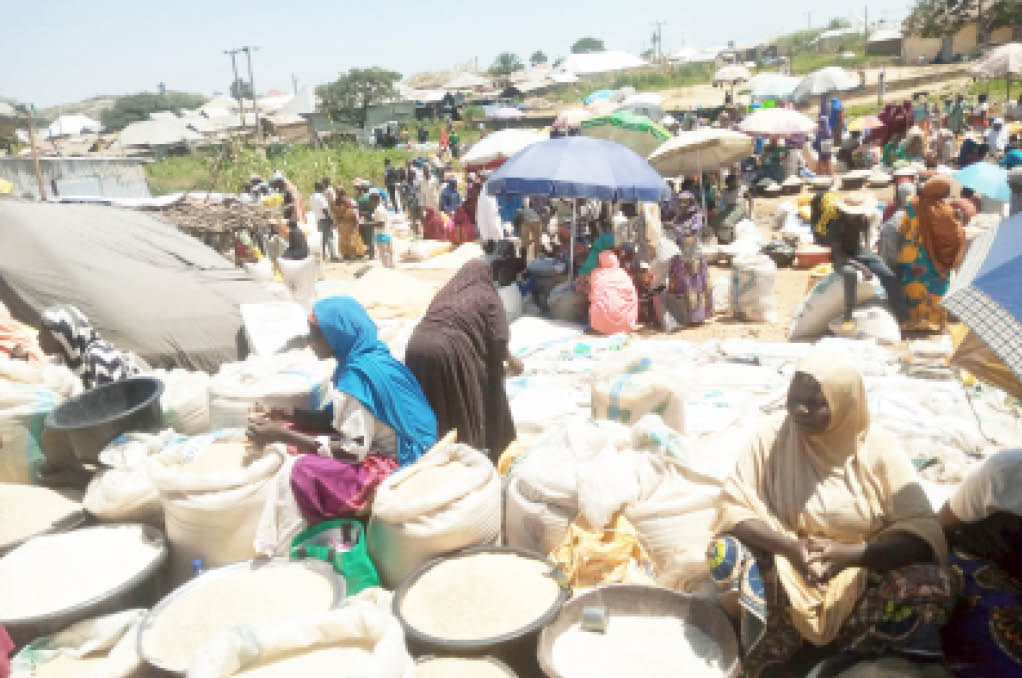How to boost agric production, generate income in Benue
Every year, farmers in Benue State suffer one form of loss or another due to various reasons, such that they do not get value for their produce in the end of a season. Some of these farmers’ teething problems occur as a result of drought, flooding or post-harvest losses. Over the years, experts have continued […]

Nigeria asked to pay attention to agro processing
Every year, farmers in Benue State suffer one form of loss or another due to various reasons, such that they do not get value for their produce in the end of a season.
Some of these farmers’ teething problems occur as a result of drought, flooding or post-harvest losses. Over the years, experts have continued to proffer solutions that are yet to completely eradicate the challenges.
A rural farmer in Makurdi, Eddy Terhile, believes that most of the challenges bedeviling farmers would be half solved if post-harvest losses were curtailed for varieties of produce cultivated in the state.
Terhile argued that Benue, with arable lands and hard-working farmers who produce food crops such as yam, rice, sesame and citrus, among others, in large quantity, could feed not only Nigeria, but could export same for income generation, as well as boost the country’s foreign exchange.
“Sadly, most of our farm produce are wasted at harvest season. There are no markets, lack of transportation, no storage facility, and farmers know little about value addition, not to talk about exporting same. So many of these produce waste,” he said.
To this end, the Nigerian Export Promotion Council (NEPC) has over the years, evolved export projects/programs in the state to assist farmers with small, medium and large plantations to export their products.
In this way, the commission had optimised that the non-oil sector of the Nigerian economy would become a global player in the international economic scene and its farm produce can also begin to compete favourably with products from other parts of the world.
This means that farmers would boost massive production in the state to further generate income and create employment, as well as ensure food security.
Already, 88 companies in Benue State have formed a strong alliance to enable them engage in yam exportation.
This is even as the NEPC has urged small and medium enterprises to take advantage of the African Continental Free Trade Area (AfCFTA) to access foreign markets and boost their businesses.
Professor Simon Irtwange, president of the National Association of Yam Farmers, Processors and Marketers, in an interview with our correspondent in Makurdi, said the 88 companies put together could export yam successfully to other parts of the world.
He also called for synergy among farmers to ensure ease in harnessing and exporting yam and other farm produce from the country. He noted that the challenges that earlier posed a hindrance to the trade had been dealt with, and such companies put together, so far can deliver 25kilogrammes boxes worth of yam to the international market.
“Benue State is interested in doing non-oil export. As a state, we have comparative and decisive advantage in lots of agro products, manufacturing products. We are here to support process, add value and see how the process goes,” he said.
Irtwange cited instances where Benue yams are taken to neigbouring countries through Lagos State, packaged and exported to foreign markets, all to the disadvantage of the state and Nigeria.
But all the sharp practices would soon be a thing of the past, as he asserted that, “Nigeria can also export yam. We have been able to identify the challenges; we are now to put it into action. We need to synergise.
“We have put together 88 companies in Benue that can do export. We will come together to have a common facility (warehouse ready). We need a destination warehouse in United States.
“We have an international yam market in Benue State, but we are not carrying out the international practice of the yam market. We are expecting declaration that yam be sold by weights in all our markets.
“No data for yams leaving markets in Benue yet. What we have there are vehicles loaded with yams, but the actual yams leaving the markets on daily basis are not known.”
Irtwange believes that with all the right things being in place and the declaration of yams to be sold in weight instead of quantity, as well as other produces in Nigeria markets as practised world over, exportable products would receive a boost.
Also, the Director/Chief Executive Officer of the NEPC, Chief Olusegun Awolowo, harped on the need for small and medium enterprises to fully benefit from the AfCFTA. He, however, stressed that it was also important for them to have a better understanding of the market entry criteria in the regional markets if Nigeria would reap the benefits of participating in it.
Represented by the trade advisor/head of the NEPC, Makurdi Export Assistance Office, Ben Anani, the executive director maintained, “Over the last decade, key market access conditions like tariffs, non-tariff barriers and utilisation of preferences have increasingly been affected by bilateral trade agreements in most developing countries, and Nigeria is no exemption.
“However, with the trade opportunities offered by the AfCFTA, it is extremely important for small and medium enterprises to have a better understanding of market entry criteria in the regional markets if Nigeria must reap the benefits of our participation in the agreement.”
